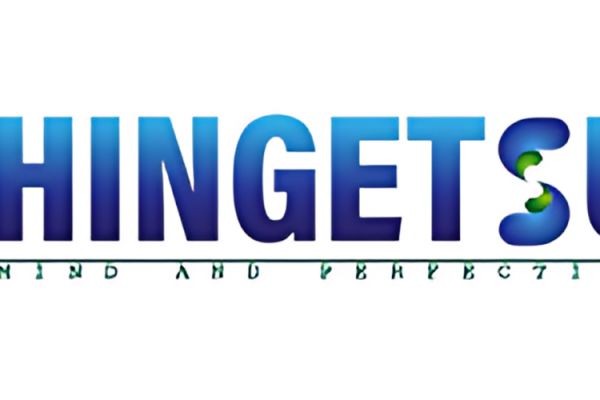The Identity Verification Market is rapidly expanding. Expected to grow from USD 8.6 billion in 2020 to USD 18.6 billion by 2027, this market is projected to witness a CAGR of 16.6%. This growth reflects increasing digitization and the rising need for secure online transactions.
What Is Identity Verification?
Identity verification confirms that a person is who they claim to be. It is essential for various processes, such as opening a bank account or applying for loans. The process plays a vital role in Know Your Customer (KYC) and anti-money laundering (AML) regulations. As online fraud increases, businesses must implement robust identity verification measures to protect against identity theft.
Digital identity verification adapts traditional methods to today's digital world. The COVID-19 pandemic heightened the importance of online security, pushing businesses to enhance their identity verification processes.
Key Growth Drivers
Several factors drive the growth of the identity verification market:
-
Rising Digitalization: Governments and businesses are digitizing services. This shift increases the demand for identity verification to protect online transactions.
-
Increased Fraudulent Activities: Identity theft and fraud are becoming more common. Companies must implement effective identity verification to combat these threats.
-
Government Initiatives: Many countries are adopting electronic ID cards and smart border management systems. These initiatives require secure identity verification.
-
Technological Advances: The integration of technologies like AI and machine learning enhances identity verification solutions.
These drivers indicate a significant shift toward comprehensive identity verification solutions across industries.
Challenges in the Market
Despite the growth, challenges exist in the identity verification market:
-
Pricing Variability: Different vendors offer various pricing models. This variability can confuse customers trying to choose the right service.
-
Technical Limitations: Some solutions may not provide adequate verification in all scenarios. Businesses must select the best technologies for their needs.
-
Data Privacy Concerns: As identity verification relies on personal data, ensuring privacy and compliance is crucial.
These challenges require careful consideration as businesses navigate the identity verification landscape.
Pre-COVID-19 Market Landscape
Before the pandemic, the identity verification market faced increasing regulatory scrutiny. KYC and AML regulations were tightening. Financial institutions had to implement more stringent verification processes to combat online fraud. The Financial Action Task Force (FATF) expanded its scope, urging member countries to comply with stricter regulations.
Impact of COVID-19
The COVID-19 pandemic transformed the global business environment. Many companies shifted to remote operations, increasing reliance on digital services. This shift resulted in a surge in demand for effective identity verification solutions. Cybercriminals took advantage of the situation, leading to a rise in identity theft and fraud cases.
Businesses now prioritize stronger identity verification measures. They seek robust authentication processes to secure their operations and protect clients.
Post-COVID-19 Market Trends
In the aftermath of the pandemic, organizations worldwide are increasing investments in digital transformation. A recent survey revealed that 47% of companies planned to invest more in digital solutions in 2021. This trend includes enhanced identity verification processes.
As more consumers turn to digital services, the demand for effective verification solutions continues to grow. Companies recognize the importance of secure identity verification in maintaining customer trust.
Segment Analysis by Organization Size
The small and medium-sized enterprises (SMEs) segment is set to experience rapid growth. SMEs are increasingly adopting identity verification solutions to mitigate fraud risks. Traditional verification methods can be time-consuming and inefficient. Therefore, SMEs find value in intuitive and cost-effective identity verification software.
Cloud deployment models offer an accessible solution for SMEs. As technology becomes more affordable, more businesses will adopt these solutions.
Vertical Segment Analysis
The Banking, Financial Services, and Insurance (BFSI) sector is the largest market for identity verification. As banking processes digitize, demand for secure identity verification increases. Financial institutions face numerous cyber threats, including data breaches and identity theft.
Stringent regulations like the Bank Secrecy Act and GDPR drive demand for identity verification solutions. These regulations require organizations to verify identities accurately to comply with legal standards.
Regional Market Insights
North America is expected to dominate the identity verification market. The region boasts advanced technology and numerous market players. Government initiatives supporting smart infrastructure and digital identity solutions drive this growth.
In contrast, the Asia Pacific region is projected to experience the fastest growth. The rapid adoption of technology and government initiatives to combat identity fraud contribute to this trend. Countries in this region are increasingly implementing eKYC regulations, driving the demand for cloud-based identity verification solutions.
Competitor Landscape
Prominent players in the identity verification market include:
- Experian
- GBG
- Equifax
- Mitek Systems
- Thales Group
These companies continually innovate to meet the evolving needs of their clients. Their efforts help shape the future of identity verification solutions.
Key Stakeholders
The identity verification ecosystem comprises various stakeholders:
- Regulatory bodies
- Market research firms
- Technology providers
- Local governments
- Suppliers
These stakeholders play crucial roles in advancing identity verification solutions and ensuring compliance with regulations.
Recent Developments
Several recent developments indicate a dynamic market:
- In November 2021, Experian launched Work Report, allowing consumers to transfer payroll details digitally.
- In June 2020, GBG partnered with CredoLab to assess creditworthiness for unbanked individuals in Indonesia.
- In December 2019, GBG and What3words collaborated to enhance location data for retailers.
These advancements reflect the industry's commitment to improving identity verification processes.
Conclusion
The Identity Verification Market is poised for significant growth. As digital services expand, the demand for secure identity verification will only increase. Businesses must adapt to emerging technologies and stringent regulations. To stay informed about the latest trends, visit the Identity Verification Market page.

